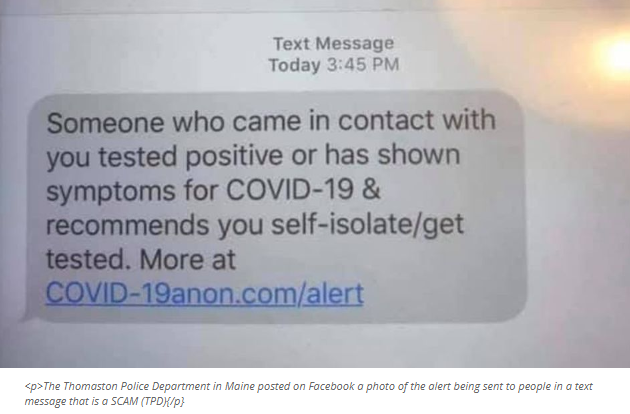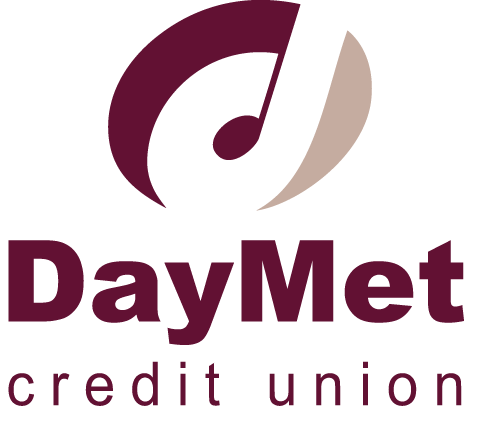5 Important Tips to Protect Your Identity and Financial Information
Scammers are using coronavirus fears to take advantage of individuals and attempt to gain personal information for their financial gain. Fraudulent emails, texts, and social media posts are circulating. Here are some steps you can take to protect yourself.
- Do not click on links from sources you do not know. This could be through email, text, or social media. They could be gateways for scammers to gather your personal information or a way to install malware on the device you are using. A police department in Maine recently warned residents to avoid, and delete, any text message like the one pictured below.

- The Federal Trade Commission says to watch for emails claiming to be from the Centers for Disease Control and Prevention (CDC) or experts saying that they have information about the virus. For the most up-to-date information about the Coronavirus, visit the Centers for Disease Control and Prevention (CDC) and the World Health Organization (WHO).
- The BBB says to ignore any requests asking you to pay fees to get your stimulus check faster. These are false claims that aim to get your bank information into the hands of scammers.
- Be wary of work-from-home job advertisements. Do your research on the company. One red flag? A company that will hire you with no interview required.
- Should you find yourself the subject of identity theft, we offer a solution to assist you! From now until December 31, 2020, we are offering Identity Theft protection to our members at no cost. This is available through our BaZing benefits with our partner, StrategyCorps. Visit our partner page and scroll down to the bottom for our Personal Identity Theft Benefits.
We encourage you to be extra cautious for phishing attempts right now. Scammers look for the opportunity take advantage of individuals during a crisis. Keep your identity and financial accounts safe.Skip back to main navigation



